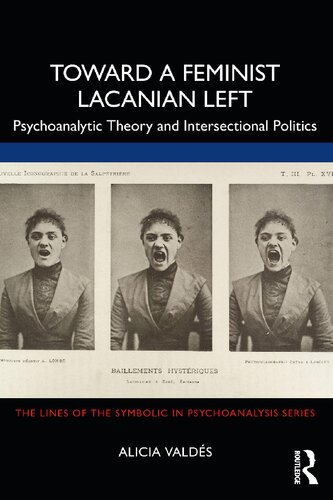

Most ebook files are in PDF format, so you can easily read them using various software such as Foxit Reader or directly on the Google Chrome browser.
Some ebook files are released by publishers in other formats such as .awz, .mobi, .epub, .fb2, etc. You may need to install specific software to read these formats on mobile/PC, such as Calibre.
Please read the tutorial at this link: https://ebookbell.com/faq
We offer FREE conversion to the popular formats you request; however, this may take some time. Therefore, right after payment, please email us, and we will try to provide the service as quickly as possible.
For some exceptional file formats or broken links (if any), please refrain from opening any disputes. Instead, email us first, and we will try to assist within a maximum of 6 hours.
EbookBell Team

5.0
78 reviewsWhile traditional feminist readings on antagonism have pivoted around the sole axis of sex and/or gender, a broader and intersectional approach to antagonism is much needed; this book offers an innovative, feminist, and discursive reading on the Lacanian concept of sexual position as a way to problematize the concepts of political antagonism and political subjects.
Can Lacanian psychoanalysis offer new grounds for feminist politics? This discursive mediation of Lacan's work presents a new theoretical framework upon which to articulate proposals for intersectional political theory. The first part of this book develops the theoretical framework, and the second part applies it to the construction of woman's identity in European politics and economy. It concludes with notes for a feminist political and economic praxis through community currencies and municipalism.
The interdisciplinary approach of this book will appeal to scholars interested in the fields of psychoanalysis, feminisms, and political philosophy as well as multidisciplinary scholars interested in discourse theory, sexuality and gender studies, cultural studies, queer theory, and continental philosophy. Students at master's and PhD level will also find this a useful feminist introduction to Lacanian psychoanalysis, discourse, and gender.